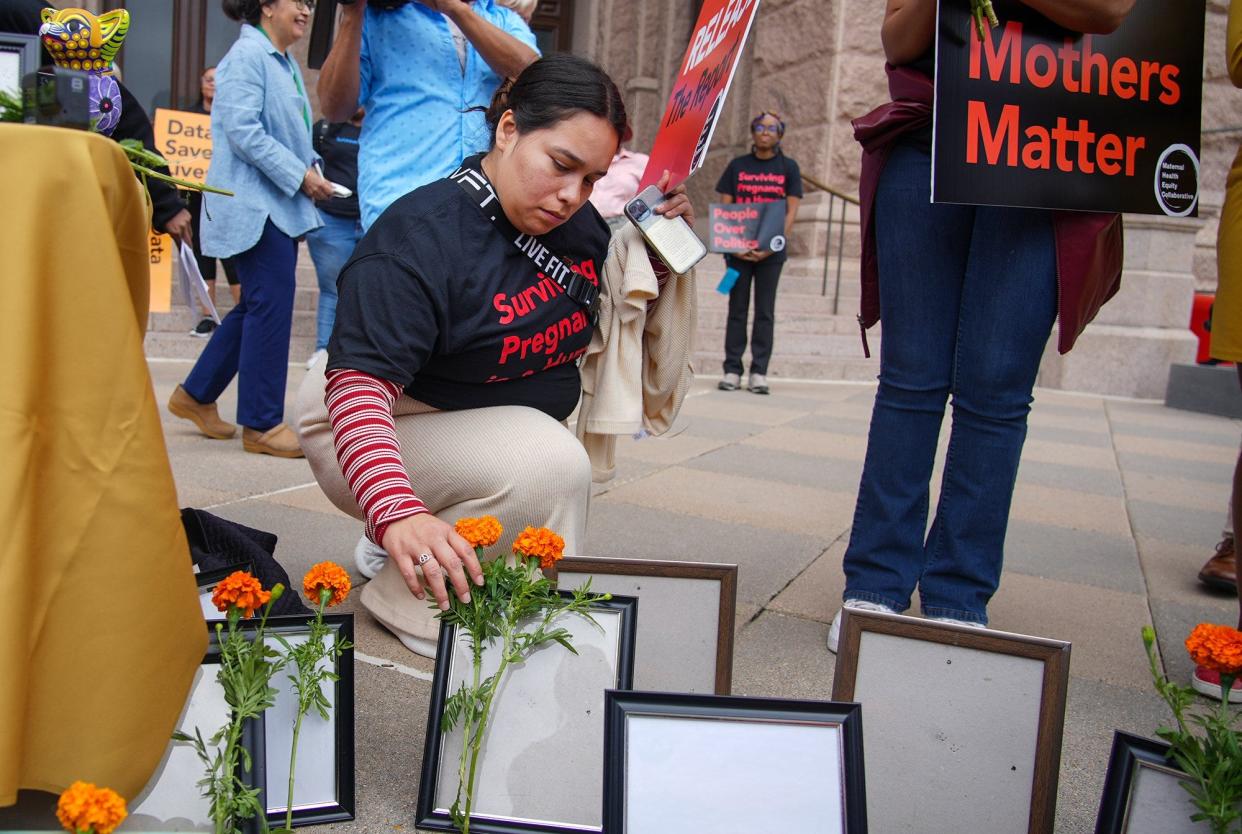Feds approve Medicaid for Texas mothers up to 12 months after birth beginning March 1

Texas mothers are one step closer to getting health coverage for 12 months following pregnancy.
This week, the federal Centers for Medicare and Medicaid Services approved Texas' plan to provide 12 months of postpartum health care coverage through Medicaid or Children's Health Insurance Program instead of the current 60 days. Those programs are for people who qualify based on income. The extended coverage will begin March 1.
"With Texas’ application approved by CMS, this postpartum extension will help Texas mothers receive high-quality healthcare across our great state," Gov. Greg Abbott said in a statement Wednesday.
In October, Texas' Health & Human Services Commission submitted its plan for 12 months of continuous postpartum coverage after the state Legislature passed House Bill 12 during the 2023 regular session in May. The bill had 73 sponsors and was bipartisan.
More: Austin families talk about being stuck in Medicaid red tape and living without coverage
In June, Abbott signed House Bill 12 into law, paving the way for the state to seek approval from CMS.
The state expects approximately 137,000 women will benefit from 12-months postpartum coverage in fiscal 2025.
“This is a fantastic step forward to support healthy moms and babies," said Diana Forester, director of health policy at advocacy group Texans Care for Children. “Disagreements between elected officials get a lot of attention, but this is an example of how our state legislators really can come together to improve access to health care for Texas families."
Many starts and stops
This is not the first time Texas tried to extend coverage for postpartum people. Two years ago, the state had submitted a plan to extend coverage to six months, but that was not approved by CMS in the hopes that Texas lawmakers would seek a 12-month extension during the 2023 legislative session. Twelve months has become standard among almost all the states. As of this month, 47 states and Washington, D.C., either have 12 months or plan to have 12 months of coverage. Only Idaho, Iowa, Arkansas and Wisconsin do not.
The news that the extended coverage was going to be put in place was celebrated on Wednesday. "I'm almost amazed that it is actually happening," said Regina Rogoff, CEO of People's Community Clinic, a federally qualified health center, which provides care for many people with lower income levels.
"It's a recognition that the postpartum period is longer than we've recognized in the past," Rogoff said.
Why is this important?
Pregnancy is a major life change, Rogoff said. Complications such as increases in blood pressure, heart conditions and postpartum depression can be life-threatening and can occur after the initial 60 days that was previously covered by Medicaid in Texas.
"The months following pregnancy are critical for monitoring women for potentially dangerous health conditions that they are more susceptible to after giving birth," said Dr. Kathleen V. Butler, chief medical officer and chief quality officer for Lone Star Circle of Care, a federally qualified health center
Maternal deaths after pregnancy have been rising across the United States, Based on 2018-2021 numbers, health care advocacy group KFF found that Texas ranked 14 for the highest number of maternal deaths per 1,000 live births.
"We expect that the extension of Medicaid will help improve the health of women in the postpartum period," Butler said. " In doing so, Texas may improve its maternal mortality rate."
While People's Community Clinic and Lone Star Circle of Care help anyone with or without insurance, this is especially good if a mother has complications and needs to be hospitalized or seek specialized care.
This coverage extension "is good for moms and babies. That's a win-win," Rogoff said.
How will the new coverage work?
This new law will affect future postpartum people as well as current new mothers. Anyone who has given birth but whose Medicaid coverage ended can reenroll if they are still within the 12-month period.
The state says coverage will be automatically reinstated for individuals who are not current Medicaid or CHIP recipients, but who were enrolled in Medicaid or CHIP in Texas while pregnant and are still within their 12-month postpartum period, as long as they are still Texas residents. Their coverage will be reinstated for the remainder of their 12-month postpartum period.
Women who are enrolled in Healthy Texas Women program, another state health care program, and are still within their 12-month postpartum period will be transitioned back to full-coverage Medicaid or CHIP for the remainder of their 12-month postpartum period.
Texans Care for Children's Forester said, "Now that the plan has been approved, we encourage state officials to move quickly to ensure that Texas moms who were recently pregnant and lost Medicaid coverage are able to re-enroll as soon as possible.”
Clinics like People's also will be working on helping new moms who lost coverage get reenrolled in Medicaid.
How to apply for Medicaid or CHIP in Texas?
To apply for Medicaid or CHIP or to find out about your status, call 211 and choose Option 2 or visit YourTexasBenefits.com.
This article originally appeared on Austin American-Statesman: Texas Medicaid approved for 12 months of postpartum care starting March 1

